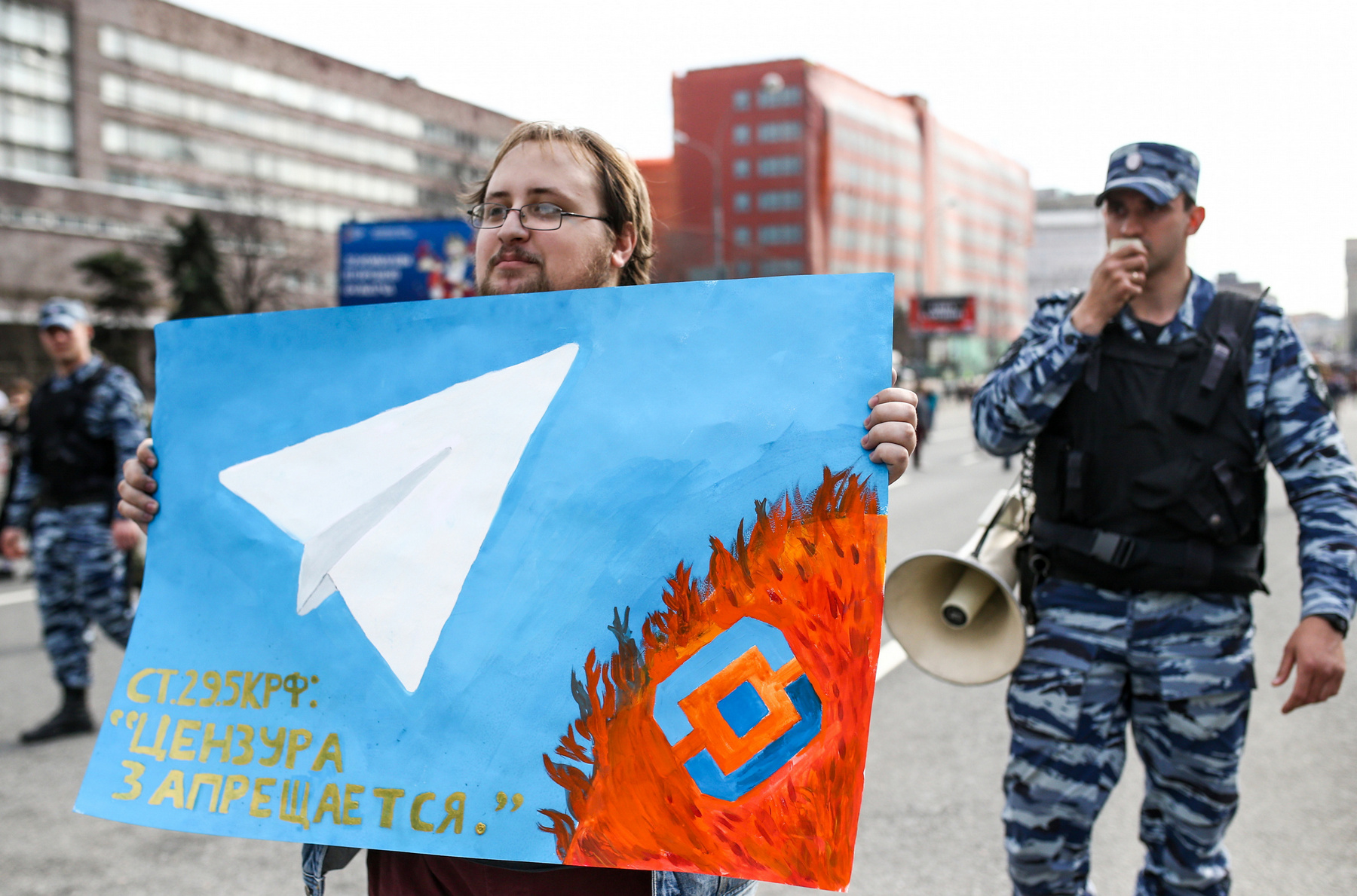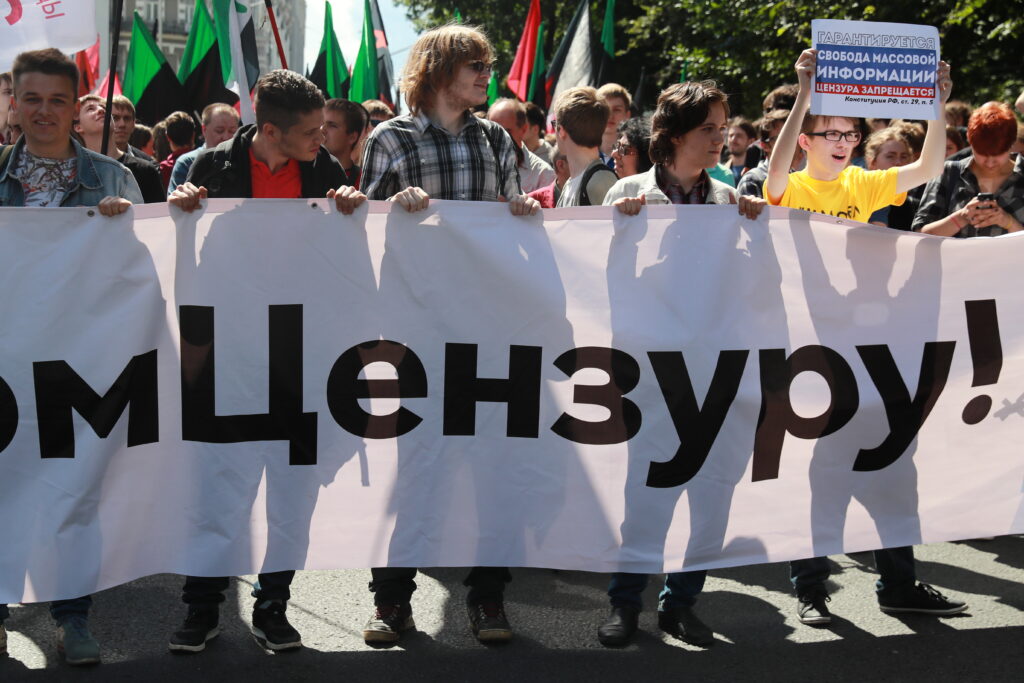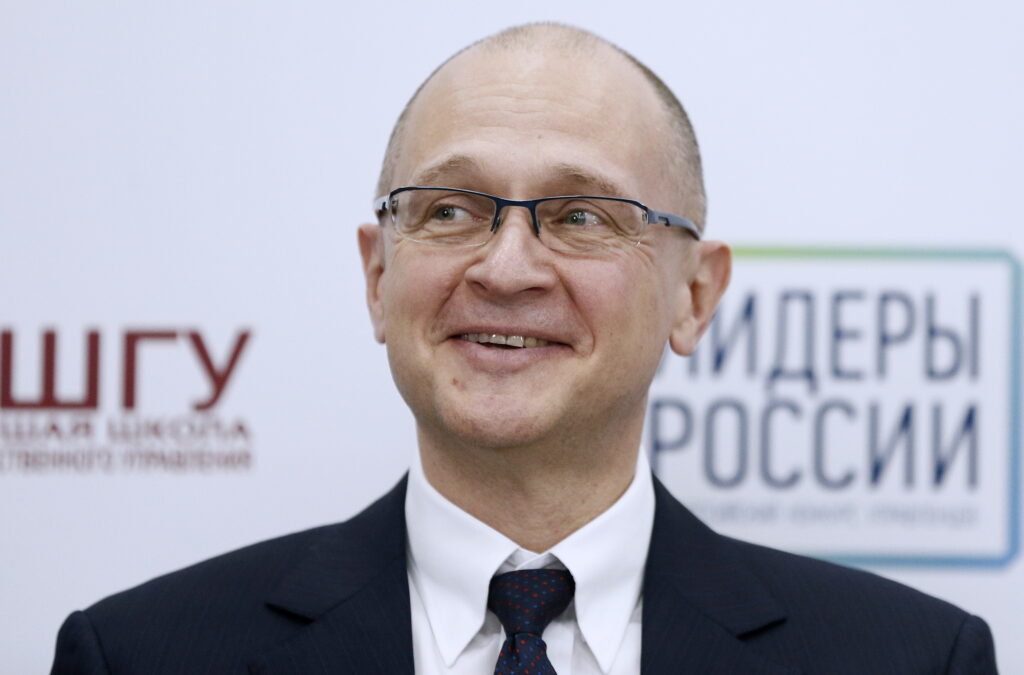More than two years after its proscription by a Moscow court, Telegram, the encrypted messaging app founded by VKontakte founder and ex-chief executive Pavel Durov, is no longer a prilozhenie non grata in Russia. Roskomnadzor’s quiet decision last week to lift its quixotic ban on Telegram brings to a close a saga that put on display the limits of state capacity — not only in a technical sense, but also in terms of the willingness of Russia’s political elites to dutifully accept official decisions, however arbitrary or unpopular they may be.
To characterize the ban as a case study of failed internet censorship is to put it lightly. Its resort to shock and awe saw millions of IP addresses blacklisted in the weeks following Telegram’s proscription. Yet Roskomnadzor succeeded only in causing sporadic outages while inflicting significant collateral damage. Eventually, it had scaled back its filtering campaign from the millions to the hundreds of thousands. By the time the ban was lifted on Thursday, the blacklist numbered around 650,000 IP addresses, a number that has since fallen to just over 30,000.
The results are damning for Roskomnadzor. Telegram has been, anecdotally, more or less easy for Russians to use over the past two years. Worse still, the messaging app’s user base in Russia in fact doubled from around 15 million users in April 2018 to 30 million users by June 2020.
If the troubled enforcing of Roskomnadzor’s ban spoke to the technical difficulty of filtering an app as widely used and resilient as Telegram, the way political elites received its proscription testified to the prevalence of legal nihilism at society’s highest levels. In defiance, though not in violation, of an official decision grounded in the law, many quietly remained active on Telegram. Among them Aleksandr Zharov, Roskomnadzor’s then-head, and then-deputy prime minister Arkady Dvorkovich. Others publicly criticized the ban, freely admitting the limits of Roskomnadzor’s power as though it were not an institution of the same state they served and whose failure was also the failure of, and an embarrassment to, the state. The presidential administration half-heartedly defended the ban — even as Kremlin spokesman Dmitry Peskov continued to use Telegram, as did several ministries, such as the Foreign Affairs Ministry and the Communications Ministry.
All in all, it left an impression of “state hypocrisy.” As Roskomsvoboda’s Stanislav Shakirov said earlier this year, “The state is trying to block Telegram with one hand and forced to use it with the other, because people are on it, it’s a comfortable service, and it [the state] cannot create one just like it.” Moreover, the widespread flouting of the ban hinted that for political elites, national security justifications were not a debate-stopper. Even office-holders ignored what Zharov once condemned as the messaging app’s “neutrality in relation to terrorists and criminals.” “Funny” though this state of affairs may have been, to quote Shakirov, there was no indication it would end until recently. Before this spring, the last obvious opportunity for the ban’s reversal was an appeal to the Supreme Court that hit a dead end in early 2019. Back then, the court’s judges declined to second-guess the FSB’s demand that Telegram aid its counterterrorism efforts by providing access to encrypted traffic.
It is not clear whose calculations changed and how between then and now. But one cause of Roskomnadzor’s retreat could have been a push by Just Russia lawmakers in the State Duma to lift the ban. Announced in late April and submitted several days before Roskomnadzor’s withdrawal, the bill was touted by its authors as a face-saving measure. Telegram’s use by state institutions meant that despite Roskomnadzor’s “declarative” ban on the messaging app, it effectively served as an “official service” for informing citizens during the coronavirus outbreak, they reasoned, adding that keeping the ineffectual proscription of Telegram in force would “do damage … to the prestige of the authority of the Russian Federation’s state.” In pre-empting the first vote on the bill, Roskomnadzor’s June 18 statement, in which it said it welcomed Durov’s “expressed willingness to counter terrorism and extremism,” allowed it to take ownership of the decision to back down — without a new court ruling, something the Communications Ministry had called a precondition for lifting the ban — instead of having parliament’s will imposed on it.
To be sure, the bill was not guaranteed to pass, and it may yet die on the floor of the State Duma. However, if one thinks of the legislature “as a venue for conflict resolution between factions in the executive and the bureaucracy” where “officials use the [law-making] stage of decision-making to settle policy conflicts,” the initiative could be a challenge from within the executive branch. By all indications, Roskomnadzor either was unwilling to fight it under the new leadership of Andrei Lipov, who replaced Zharov in March, or saw the writing was on the wall for the ban. Judging by how it withheld support for the bill after reviewing the proposal in May, the Communications Ministry is unlikely to have been behind the bill. (And it is not a given that the presidential administration was, either.) Still, for some faction with allies in parliament, the ban was no longer worth keeping around. Roskomnadzor, for its part, is certain to see silver linings in lifting the ban, a holdover from Zharov’s tenure as agency head. The ban had made Roskomnadzor an object of ridicule on the very medium it is supposed to regulate.
Will Roskomnadzor be further humbled? Probably not, given that the spectacle that was the ban’s rollout in April 2018 did not lead to Zharov’s sacking as part of the following month’s government reshuffle. Will Telegram reconcile with the regime? Durov, who insists that Telegram has gotten better at taking down extremist content but will continue to focus on the privacy of its users, has an admittedly ambiguous history with not only Russia’s authorities but also those in other autocracies. He tends to vacillate between resistance and accommodation in his dealings with the Kremlin. Finally, will Roskomnadzor’s broader efforts to bring the internet under state control abate now that the failure of its riskiest gamble has become official? Certainly not. For one, the coronavirus pandemic has seen Russia’s domestic internet control regime lumber on unhindered. Hundreds of Russians have been charged with spreading coronavirus-related fake news. Russians will continue their struggle for internet freedom, but for the time being, there is one less intrusion to protest.










